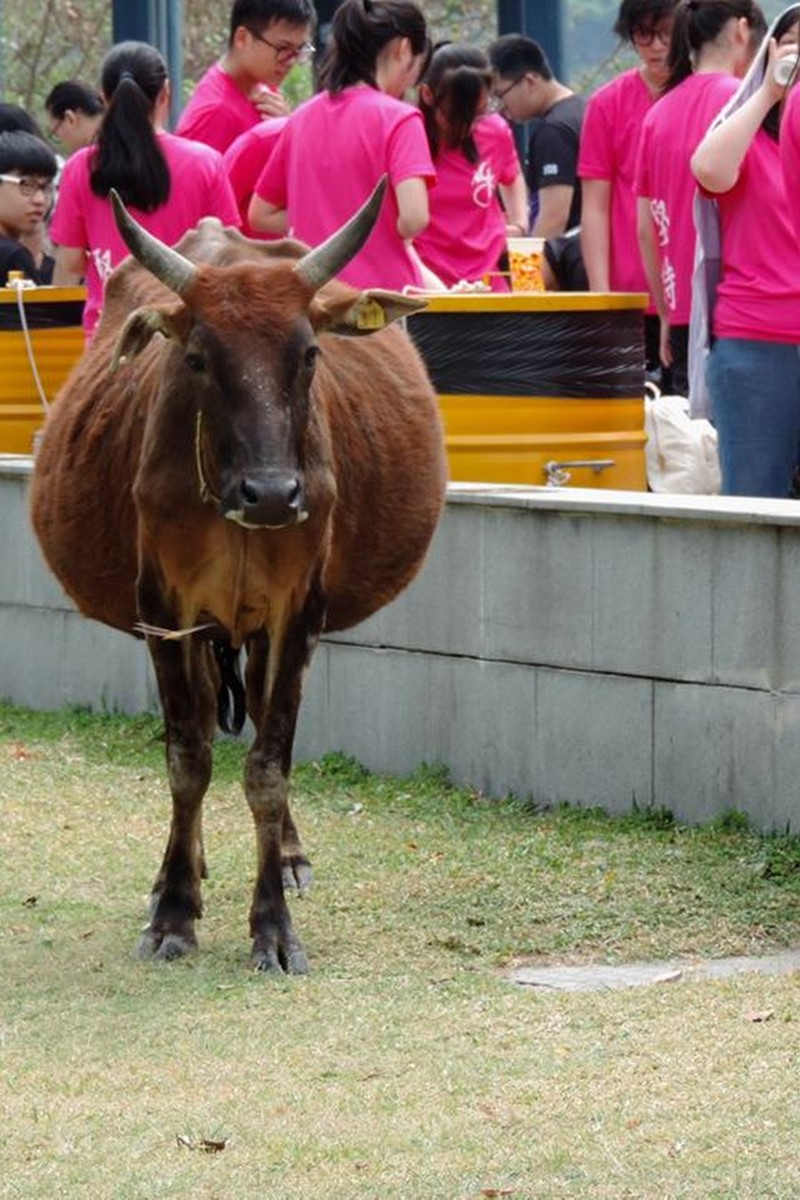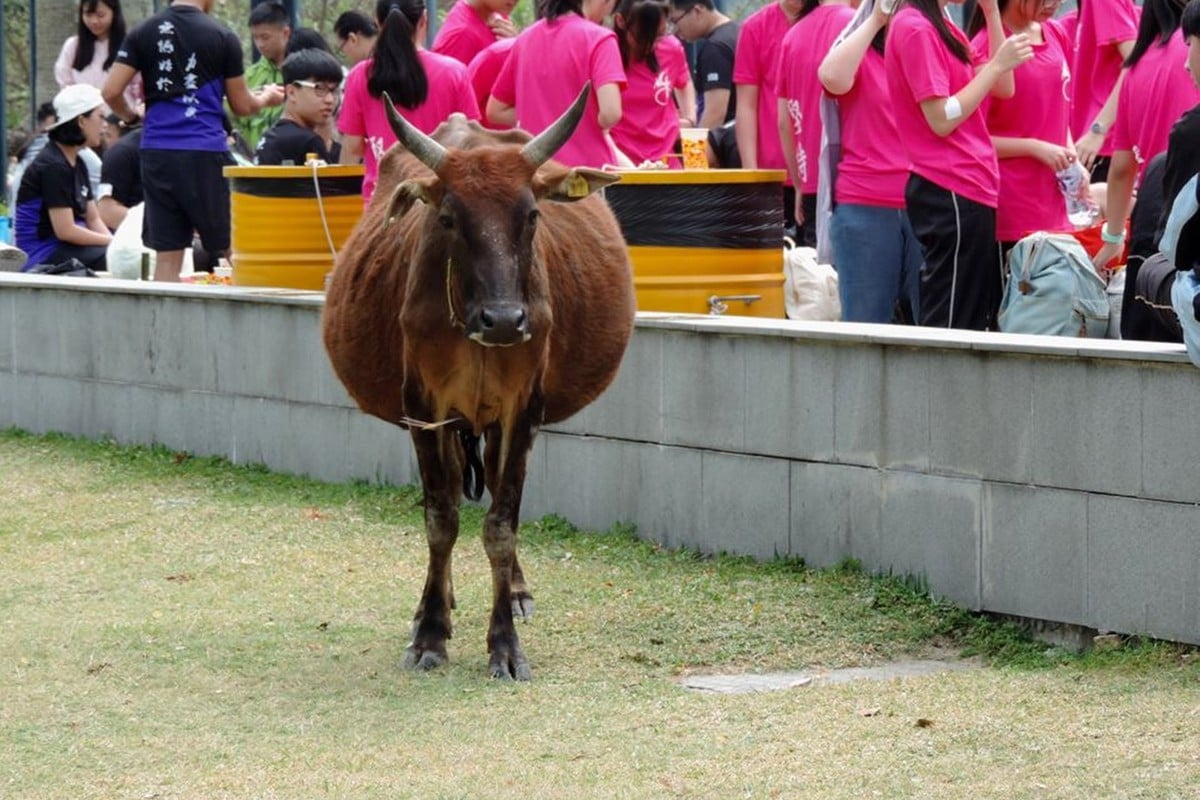
Plastic pollution leads to death of beloved HK bull: Billy was found with two rubbish bins' worth of waste in his stomach
Greenpeace urge people to curb the use of single-use plastics to prevent the tragedy from repeating
 Should Billy's appearance have been cause for concern before his death?
Should Billy's appearance have been cause for concern before his death?One of the Hong Kong’s most beloved animals was found dead with a stomach full of plastic on Friday.
Billy was an eight-year-old bull who lived on Pui O beach on the south of Lantau Island. An examination showed that the animal’s stomach and intestinal tract had been blocked with enough plastic bags to fill two rubbish bins, the Agriculture, Fisheries and Conservation Department (AFCD) said on Monday evening.
The AFCD declared the cause of death to be from plastic in his intestinal tract
More than 17 million pieces of plastic waste are flushed into the sea around Hong Kong each year
“I believe this tragedy happened partly because people were leaving behind their trash after going to the beach or to the countryside,” Greenpeace campaigner Chan Hall-sion said.
She added that beaches were high-risk areas as single-use plastics thrown into bins could easily be blown back out into the surrounding area.
“Don’t think that you’ve already done your part by throwing rubbish into the bin,” Chan said.
The fan page, titled Billy “the Pui O legendary cow” – although Billy was male – said the animal had been attacked by dogs when it was only a few months old. It became used to humans after being nursed back to health by vets and Lantau residents, and later joined a buffalo herd on the beach.
In recent years, its friendly encounters with tourists who visited the beach and the neighbouring campsite meant it ended up eating their leftovers. It also got into the habit of being fed by visitors.
“This led to a change in its habits for finding food … and made it correlate plastic bags with food,” the AFCD statement said.
Hong Kong is decades behind other East Asian cities when it comes to sensible waste disposal
Lantau Buffalo Association chairwoman Ho Loy, who had helped raise Billy over the years, said Lantau residents were “greatly saddened” by the news.
"We are extremely sad that it’s gone. Billy taught us a lot," she said.
Ho said Billy was described as legendary because it had joined an entirely different species on its own at a young age and at one point learned from the buffaloes how to swim.
“Billy also helped change the way people thought about cattle. Some Lantau residents used to think that they were dangerous and aggressive, but Billy helped them change that perception with his friendly demeanour,” she said.
Are paper straws actually that much better than their plastic cousins?
She criticised the government for the red tape preventing groups from putting up banners to educate the public about not feeding wild animals. The government had put up one banner, she said, but it was badly designed and most people ignored it.
“They just regulate for the sake of regulating, they don’t think if what they’re doing is effective or not. How many people would actually be willing to spend money on making banners to help save cattle?”
Chan said it was important to curb the use of single-use plastics at the source.
“For visitors who are going to beaches or the countryside, planning ahead and bringing reusable cutlery and boxes can already help,” she said.
Here's one creative way an artist is helping address the plastic pollution probelm in the city
She also encouraged restaurants and kiosks at beaches to take the lead in handing out less throwaway plastic.
Since July, the government has run a “Plastic Free Beach, Tableware First” campaign, with at least 47 kiosks and restaurants operating at the city’s public beaches pledging to avoid distributing plastic straws and disposable plastic tableware.
Plastic debris account for between 60 and 80 per cent of marine litter found along shorelines, according to a survey of 34 coastal sites by WWF-Hong Kong in 2015 and 2016. Most of them were single-use disposable items such as polystyrene fragments and plastic packaging.
About 154 tonnes of disposable plastic tableware – about 2 per cent of all municipal waste – went into the city’s overflowing landfills in 2016. Plastic, in general, accounts for roughly a fifth of the city’s daily municipal waste generation.
